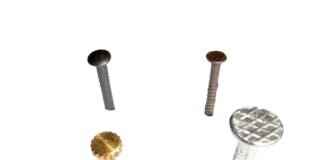This article delves into the cognitive enhancement properties of Lion’s Mane capsules, examining their potential benefits, mechanisms of action, and how they contribute to overall brain health.
What is Lion’s Mane Mushroom?
Lion’s Mane mushroom, scientifically known as Hericium erinaceus, is a unique fungus celebrated for its potential health benefits, particularly in cognitive enhancement and neuroprotection. This remarkable mushroom has been used in traditional medicine for centuries, and modern research is beginning to uncover its myriad advantages.
How Do Lion’s Mane Capsules Work?
Lion’s Mane capsules contain bioactive compounds that may stimulate nerve growth factor (NGF) production, promoting brain health and enhancing cognitive functions such as memory and focus. This mechanism is crucial for maintaining healthy brain function as we age.
Bioactive Compounds in Lion’s Mane
- Hericenones: These compounds may enhance NGF synthesis, contributing to the growth and repair of neurons.
- Erinacines: Another group of compounds that may help protect against neurodegenerative diseases.
Potential Cognitive Benefits
Research suggests that Lion’s Mane capsules may improve memory, focus, and overall cognitive function, making them a popular choice for those seeking mental clarity and enhanced brain performance.
Scientific Studies Supporting Cognitive Benefits
- Clinical Trials: Participants taking Lion’s Mane extract exhibited improved cognitive functions.
- Animal Studies: Demonstrated that Lion’s Mane can promote neurogenesis and improve cognitive performance.
How to Incorporate Lion’s Mane Capsules into Your Routine
Incorporating Lion’s Mane capsules into your daily routine can be simple. They can be taken as a dietary supplement to potentially enhance cognitive clarity and overall brain health.
Recommended Dosage
The typical dosage of Lion’s Mane capsules varies, but many experts suggest a daily intake of 500 to 3000 mg for optimal cognitive benefits.
Choosing the Right Product
Selecting high-quality Lion’s Mane capsules is essential; look for products that contain standardized extracts to ensure potency and effectiveness.
Possible Side Effects and Precautions
While Lion’s Mane is generally considered safe, some individuals may experience mild side effects. It’s important to be aware of these and consult a healthcare provider if necessary.
Common Side Effects
- Digestive discomfort
- Allergic reactions
Who Should Avoid Lion’s Mane?
Individuals with mushroom allergies or those on certain medications should consult a healthcare professional before using Lion’s Mane capsules to avoid adverse interactions.
Conclusion: The Future of Cognitive Enhancement with Lion’s Mane
Lion’s Mane capsules offer a promising avenue for cognitive enhancement, backed by research and anecdotal evidence. Continued studies may further illuminate their potential benefits for brain health and cognitive clarity.

What is Lion’s Mane Mushroom?
Lion’s Mane mushroom, scientifically known as Hericium erinaceus, is a fascinating fungus that has garnered attention for its numerous health benefits, particularly in the realm of cognitive enhancement and neuroprotection. This unique mushroom, resembling a lion’s mane, is not only visually striking but also rich in bioactive compounds that may support brain health.
Traditionally used in Asian medicine, Lion’s Mane is now gaining popularity in the Western world as a natural supplement. Its potential to improve memory, focus, and overall cognitive function makes it a sought-after option for those looking to enhance their mental clarity. Research indicates that the mushroom may promote the production of nerve growth factor (NGF), a protein essential for the growth and maintenance of neurons.
One of the most exciting aspects of Lion’s Mane is its ability to support neurogenesis, the process by which new neurons are formed in the brain. This is particularly important as we age, as neurodegenerative diseases become more prevalent. Studies have shown that the bioactive compounds in Lion’s Mane, such as hericenones and erinacines, play a crucial role in this process, potentially offering protective effects against cognitive decline.
Furthermore, Lion’s Mane mushroom is believed to possess antioxidant properties, which can help combat oxidative stress in the brain, a factor that contributes to neurodegenerative diseases. By incorporating Lion’s Mane into your diet, whether through capsules or as a culinary ingredient, you may be taking a proactive step towards enhancing your cognitive health.
In summary, Lion’s Mane mushroom is a remarkable natural supplement that holds promise for cognitive enhancement and neuroprotection. As research continues, we may uncover even more benefits of this unique fungus, solidifying its place in the realm of brain health.

How Do Lion’s Mane Capsules Work?
Lion’s Mane capsules are gaining popularity for their potential to enhance cognitive function and overall brain health. These capsules are derived from the Lion’s Mane mushroom, scientifically known as Hericium erinaceus, which is renowned for its unique properties that may positively impact the nervous system.
The primary mechanism through which Lion’s Mane capsules operate is by stimulating the production of Nerve Growth Factor (NGF). NGF is a crucial protein that supports the survival, maintenance, and growth of neurons, the fundamental building blocks of the nervous system. By promoting NGF synthesis, Lion’s Mane may help in the growth and repair of neurons, thereby enhancing cognitive functions such as memory, focus, and learning.
| Bioactive Compounds | Effects on Brain Health |
|---|---|
| Hericenones | Enhances NGF synthesis, supports neuron growth |
| Erinacines | Provides neuroprotective effects, may prevent cognitive decline |
Research indicates that the bioactive compounds in Lion’s Mane, particularly hericenones and erinacines, play a significant role in promoting cognitive clarity. These compounds not only stimulate NGF production but also offer protective benefits against neurodegenerative diseases, thus contributing to improved cognitive performance.
- Memory Enhancement: Regular intake may lead to improved memory retention and recall.
- Focus and Concentration: Users often report heightened focus and reduced mental fatigue.
- Neuroprotection: The mushroom may help shield the brain from age-related decline.
In conclusion, Lion’s Mane capsules work primarily by enhancing the production of NGF, which is vital for neuron health and cognitive function. With the potential to improve memory, focus, and overall brain health, these capsules present a promising natural supplement for those seeking cognitive enhancement.
Bioactive Compounds in Lion’s Mane
Lion’s Mane mushroom, scientifically known as Hericium erinaceus, is a fascinating fungus renowned for its potential benefits for brain health. Among its many attributes, the primary bioactive compounds, hericenones and erinacines, are believed to be vital in promoting cognitive clarity and overall mental well-being.
Understanding Hericenones
Hericenones are unique compounds found in Lion’s Mane that have been shown to stimulate the production of nerve growth factor (NGF). This is crucial because NGF plays a significant role in the growth, maintenance, and survival of neurons. By enhancing NGF synthesis, hericenones contribute to the repair and regeneration of brain cells, which is essential for maintaining cognitive functions such as memory and learning.
The Impact of Erinacines
On the other hand, erinacines, another class of bioactive compounds in Lion’s Mane, exhibit neuroprotective properties. They have been linked to the prevention of neurodegenerative diseases by reducing inflammation and oxidative stress in the brain. This protective effect not only helps in maintaining cognitive function but also enhances overall brain health, making erinacines a key player in the mushroom’s beneficial profile.
Research Insights on Bioactive Compounds
- Studies have shown that both hericenones and erinacines can promote neurogenesis, the process of forming new neurons, which is vital for cognitive enhancement.
- Animal research indicates that these compounds may improve learning and memory capabilities, supporting their use in cognitive health supplements.
In summary, the bioactive compounds found in Lion’s Mane, particularly hericenones and erinacines, are essential for promoting brain health and cognitive clarity. Their ability to stimulate NGF production and offer neuroprotection provides a compelling case for the use of Lion’s Mane as a natural supplement for enhancing mental performance.
The Role of Hericenones
Hericenones are a group of bioactive compounds found in the Lion’s Mane mushroom (Hericium erinaceus). These compounds are gaining attention for their potential to significantly enhance brain health and cognitive function. One of the primary mechanisms through which hericenones operate is by stimulating the synthesis of nerve growth factor (NGF), a crucial protein for the growth, maintenance, and survival of neurons.
NGF plays a vital role in the central nervous system, and its synthesis is essential for neurogenesis—the process of forming new neurons. By promoting NGF production, hericenones may facilitate the growth and repair of neurons, leading to improved cognitive functions such as memory, learning, and overall brain clarity.
Research indicates that hericenones may also contribute to neuroprotection, helping to shield neurons from damage caused by oxidative stress and inflammation. This protective effect is particularly important in the context of neurodegenerative diseases, where neuronal health is compromised. Studies have shown that hericenones can enhance neuronal viability, thus supporting long-term cognitive health.
In addition to their neuroprotective properties, hericenones have been linked to improved mood and mental clarity. Users of Lion’s Mane capsules often report enhanced focus and reduced mental fatigue, which can be attributed to the compound’s ability to support overall brain function.
To maximize the benefits of hericenones, it’s essential to choose high-quality Lion’s Mane supplements that contain standardized extracts. This ensures that the product delivers a consistent and effective dose of these vital compounds. As research continues to uncover the full potential of hericenones, they represent a promising avenue for those seeking to enhance their cognitive abilities and support brain health.
The Role of Erinacines
in Lion’s Mane Mushroom: A Deep Dive into Neuroprotection
Lion’s Mane mushroom, scientifically known as Hericium erinaceus, has garnered significant attention in the realm of cognitive enhancement and neuroprotection due to its unique bioactive compounds, particularly erinacines. These compounds are believed to offer a range of benefits that could play a crucial role in safeguarding brain health.
Erinacines, a group of compounds found in Lion’s Mane, are known for their ability to stimulate the production of nerve growth factor (NGF). This is essential for the growth, maintenance, and survival of neurons. By enhancing NGF synthesis, erinacines may help in the regeneration of nerve cells, potentially reversing damage caused by neurodegenerative diseases.
- Neuroprotective Properties: Erinacines exhibit strong neuroprotective properties that can help shield the brain from oxidative stress and inflammation, both of which are linked to neurodegenerative conditions like Alzheimer’s and Parkinson’s disease.
- Cognitive Performance Enhancement: Regular consumption of Lion’s Mane capsules containing erinacines may lead to improved cognitive functions, including memory, focus, and mental clarity.
- Potential in Neurodegenerative Disease Prevention: Preliminary studies suggest that erinacines may play a role in preventing the onset of neurodegenerative diseases, thus supporting long-term cognitive health.
In summary, the role of erinacines in Lion’s Mane mushroom cannot be overstated. Their neuroprotective properties and ability to enhance cognitive performance make them a valuable component in the pursuit of better brain health. As research continues to explore the full potential of these compounds, they could become a staple in cognitive enhancement strategies.
For those interested in harnessing the benefits of erinacines, incorporating high-quality Lion’s Mane capsules into your daily routine may be a beneficial step toward achieving improved cognitive clarity and overall brain health.
Potential Cognitive Benefits
Potential Cognitive Benefits of Lion’s Mane Capsules
The exploration of Lion’s Mane capsules has garnered significant attention in the realm of cognitive enhancement. This unique mushroom, scientifically known as Hericium erinaceus, is renowned for its potential to support brain health and improve cognitive functions.
Memory Enhancement
One of the most compelling benefits of Lion’s Mane capsules is their ability to enhance memory. Research indicates that the bioactive compounds within Lion’s Mane, particularly hericenones and erinacines, may stimulate the production of nerve growth factor (NGF). NGF is crucial for the survival and maintenance of neurons, which play a vital role in memory formation and retention.
Improved Focus and Concentration
In addition to memory enhancement, Lion’s Mane capsules may also improve focus and concentration. Users have reported experiencing increased mental clarity and a greater ability to concentrate on tasks. This effect can be particularly beneficial for students and professionals seeking to boost their productivity.
Neuroprotection
Another significant benefit of Lion’s Mane is its potential neuroprotective properties. Studies suggest that the compounds in Lion’s Mane may help protect against neurodegenerative diseases, such as Alzheimer’s and Parkinson’s. By promoting neuronal health and reducing inflammation, Lion’s Mane may help preserve cognitive function as individuals age.
Supporting Overall Brain Health
Regular consumption of Lion’s Mane capsules may contribute to overall brain health. The antioxidants present in Lion’s Mane can combat oxidative stress, which is linked to cognitive decline. By incorporating Lion’s Mane into one’s daily regimen, individuals may not only enhance their cognitive abilities but also support long-term brain health.
In summary, the potential cognitive benefits of Lion’s Mane capsules are extensive. From memory enhancement to neuroprotection, this remarkable mushroom offers a natural way to support cognitive function and overall brain health.

Scientific Studies Supporting Cognitive Benefits
Numerous research efforts have been dedicated to exploring the cognitive benefits of Lion’s Mane mushroom, particularly its effects on memory enhancement and neuroprotection. These studies have provided compelling evidence that supports the use of Lion’s Mane as a natural supplement for improving brain health.
One of the most notable studies conducted in Japan involved elderly participants with mild cognitive impairment. The results indicated that those who consumed Lion’s Mane extract showed significant improvements in cognitive function over a 16-week period. Participants who took the extract demonstrated enhanced memory, better focus, and an overall improvement in their mental clarity compared to those who received a placebo.
Another significant study published in the journal Evidence-Based Complementary and Alternative Medicine highlighted the neuroprotective properties of Lion’s Mane. Researchers found that the mushroom’s bioactive compounds, particularly hericenones and erinacines, contributed to the stimulation of nerve growth factor (NGF) synthesis. This process is crucial for the growth, maintenance, and survival of neurons, suggesting that Lion’s Mane could play a vital role in preventing neurodegenerative diseases.
Animal studies have also reinforced these findings. Research involving mice indicated that Lion’s Mane consumption led to increased neurogenesis, which is the process of forming new neurons. Mice that were given Lion’s Mane performed better in memory tasks, demonstrating the potential of this mushroom to enhance cognitive performance through its neurogenic properties.
In summary, the scientific evidence surrounding Lion’s Mane mushroom is promising. The studies conducted thus far suggest that this natural supplement may significantly improve cognitive function, memory, and overall brain health. As research continues, it may further validate Lion’s Mane’s role as a beneficial supplement for cognitive enhancement.
Clinical Trials and Findings
Recent clinical trials have provided compelling evidence regarding the cognitive benefits of Lion’s Mane mushroom extract. Participants in these studies have reported noticeable improvements in various cognitive functions, including memory, focus, and overall mental clarity. These findings suggest that Lion’s Mane may serve as a valuable natural supplement for those seeking to enhance their brain health.
In one notable study, participants who consumed Lion’s Mane extract for a period of 16 weeks demonstrated significant improvements in their cognitive performance compared to those who received a placebo. The results indicated not only enhanced memory recall but also improved scores in tasks requiring concentration and problem-solving skills.
Furthermore, the research has highlighted the potential neuroprotective effects of Lion’s Mane. The mushroom contains bioactive compounds that are believed to stimulate the production of nerve growth factor (NGF), which plays a crucial role in the growth, maintenance, and survival of neurons. This mechanism is particularly important as it may help protect against age-related cognitive decline and neurodegenerative diseases.
Animal studies have also supported these findings, showing that Lion’s Mane can promote neurogenesis—the process of forming new neurons—thereby enhancing cognitive abilities. These promising results pave the way for further research into how Lion’s Mane can be effectively utilized in both clinical and everyday settings.
In conclusion, the evidence from clinical trials and animal studies underscores the potential of Lion’s Mane extract as a natural cognitive enhancer. As research continues to unfold, it is becoming increasingly clear that this remarkable mushroom could play a significant role in supporting brain health and cognitive function.
Animal Studies and Insights
Research involving animal models has provided significant insights into the cognitive benefits of Lion’s Mane mushroom (Hericium erinaceus). These studies are crucial as they lay the groundwork for understanding how Lion’s Mane may affect human cognitive health.
In various animal studies, it has been observed that Lion’s Mane can effectively promote neurogenesis, which is the process of generating new neurons in the brain. This is particularly important as neurogenesis is linked to improved learning and memory capabilities. For instance, rodents that were administered Lion’s Mane extract showed notable increases in both the size and number of neurons in the hippocampus, a brain region critical for memory formation.
Additionally, these studies have indicated that Lion’s Mane may enhance cognitive performance. Animals treated with Lion’s Mane demonstrated improved performance in tasks designed to assess memory and learning skills. This suggests that the bioactive compounds found in Lion’s Mane, such as hericenones and erinacines, play a vital role in supporting brain function and overall cognitive health.
Moreover, the neuroprotective properties of Lion’s Mane have been highlighted in various studies. These properties may help protect against neurodegenerative diseases, which are characterized by the progressive degeneration of the structure and function of the nervous system. By promoting the health of neurons and supporting their repair, Lion’s Mane could potentially serve as a natural supplement to mitigate the effects of age-related cognitive decline.
In conclusion, the findings from animal studies provide a compelling foundation for the use of Lion’s Mane in human supplements aimed at enhancing cognitive clarity and overall brain health. Continued research is essential to fully understand the implications of these findings and to explore the potential benefits for human cognitive function.

How to Incorporate Lion’s Mane Capsules into Your Routine
Incorporating Lion’s Mane capsules into your daily regimen can be a straightforward and beneficial process. These capsules serve as a convenient dietary supplement, offering potential advantages for cognitive clarity and overall brain health. Here’s how you can seamlessly add them to your lifestyle:
- Determine Your Goals: Before starting, consider what you hope to achieve by taking Lion’s Mane. Whether it’s enhancing memory, improving focus, or supporting overall brain function, having clear objectives can guide your usage.
- Choose the Right Form: Lion’s Mane is available in various forms, including capsules, powders, and tinctures. Capsules are often preferred for their ease of use and precise dosing.
- Establish a Routine: Consistency is key when incorporating any supplement. Choose a specific time of day to take your Lion’s Mane capsules, such as during breakfast or lunch, to make it a part of your daily routine.
- Follow Recommended Dosages: Most experts recommend a daily intake of 500 to 3000 mg of Lion’s Mane. It’s best to start with a lower dose and gradually increase it as needed, paying attention to how your body responds.
- Combine with a Healthy Diet: For optimal results, pair Lion’s Mane with a balanced diet rich in nutrients that support brain health, such as omega-3 fatty acids, antioxidants, and vitamins.
- Stay Hydrated: Ensure you drink plenty of water throughout the day, as hydration plays a crucial role in cognitive function and overall health.
- Monitor Your Progress: Keep track of any changes in your cognitive abilities, mood, and overall well-being. This will help you assess the effectiveness of Lion’s Mane in your routine.
By following these steps, you can effectively incorporate Lion’s Mane capsules into your daily life, potentially unlocking their cognitive enhancement benefits.
Recommended Dosage
The recommended dosage of Lion’s Mane capsules can significantly influence the cognitive benefits one might experience. While there is no one-size-fits-all answer, many health experts advocate for a daily intake ranging from 500 mg to 3000 mg. This dosage range is believed to optimize the cognitive enhancements associated with Lion’s Mane mushroom, particularly in areas such as memory, focus, and overall brain health.
It’s essential to start with a lower dosage, especially for those new to Lion’s Mane supplements. Many users find that beginning with 500 mg allows them to assess their body’s response. After a week or two, individuals can gradually increase their dosage, observing how their cognitive functions respond. Some may find that doses closer to 2000 mg provide the best results, while others may benefit from approaching the upper limit of 3000 mg.
When considering Lion’s Mane capsules, it’s crucial to choose products that contain standardized extracts. This ensures that the capsules provide a consistent amount of the active compounds, such as hericenones and erinacines, which are responsible for the mushroom’s cognitive benefits.
Additionally, consulting with a healthcare provider before starting any new supplement regimen is advisable. This is particularly important for individuals with existing health conditions, those taking medications, or those who are pregnant or breastfeeding. A healthcare professional can provide personalized recommendations based on individual health needs.
In conclusion, while the typical dosage of Lion’s Mane capsules ranges from 500 mg to 3000 mg, personal experimentation within this range, along with professional guidance, can lead to optimal cognitive enhancement and overall brain health.
Choosing the Right Product
is crucial when it comes to maximizing the benefits of Lion’s Mane capsules. As the market becomes increasingly saturated with various supplements, it is essential to make informed decisions to ensure you are investing in a product that delivers potency and effectiveness.
When selecting Lion’s Mane capsules, consider the following key factors:
- Standardized Extracts: Look for products that specify they contain standardized extracts. This ensures that each capsule contains a consistent level of active compounds, such as hericenones and erinacines, which are vital for cognitive enhancement.
- Source and Quality: Choose capsules made from high-quality Lion’s Mane mushrooms. Products derived from mushrooms cultivated in optimal conditions and harvested at the right time will likely have higher concentrations of beneficial compounds.
- Third-Party Testing: Opt for brands that undergo third-party testing. This independent verification can provide assurance regarding the product’s purity, potency, and absence of contaminants.
- Customer Reviews and Reputation: Research customer feedback and the reputation of the brand. Positive reviews and a solid track record in the industry can provide insights into the product’s effectiveness.
- Transparent Labeling: Ensure that the product label clearly lists all ingredients, including any fillers or additives. Transparency is key to understanding what you are consuming.
By focusing on these factors, you can select a high-quality Lion’s Mane capsule that aligns with your health goals. Remember, the right product can significantly influence your cognitive enhancement journey, making it imperative to choose wisely.
In conclusion, investing time in selecting the right Lion’s Mane capsules can pave the way for improved cognitive function and overall brain health. Always prioritize quality and efficacy to reap the full benefits of this remarkable mushroom.

Possible Side Effects and Precautions
While Lion’s Mane mushroom is generally regarded as a safe and beneficial supplement for cognitive enhancement, it is essential to recognize that some individuals may experience mild side effects. Understanding these potential effects can help users make informed decisions about their health and wellness.
| Common Side Effects | Description |
|---|---|
| Digestive Discomfort | Some users report symptoms such as nausea, bloating, or diarrhea, particularly when first starting the supplement. |
| Allergic Reactions | Though rare, individuals with mushroom allergies may experience allergic reactions, including skin rashes or itching. |
It is crucial to consult a healthcare provider if you experience any adverse effects, especially if they persist. Additionally, individuals with specific health conditions or those taking medications should exercise caution. Here are some considerations:
- Mushroom Allergies: Those with known allergies to mushrooms should avoid Lion’s Mane to prevent serious allergic reactions.
- Medication Interactions: If you are on anticoagulants or other medications, consult your doctor to ensure there are no potential interactions.
- Pregnant or Nursing Women: Safety during pregnancy or breastfeeding has not been thoroughly studied; therefore, it is advisable to seek medical advice.
In summary, while Lion’s Mane mushroom is a promising supplement for cognitive enhancement, being aware of potential side effects and consulting with a healthcare professional is vital. This proactive approach can help ensure that you reap the benefits of this natural product while minimizing any risks.
Common Side Effects
Common Side Effects of Lion’s Mane
Lion’s Mane mushroom, known scientifically as Hericium erinaceus, is widely recognized for its potential cognitive and health benefits. However, like any supplement, it may come with some side effects. Understanding these can help users make informed decisions about incorporating Lion’s Mane capsules into their routines.
- Digestive Discomfort: Some individuals may experience mild digestive issues, such as bloating or stomach upset, particularly when they first start taking Lion’s Mane. These symptoms are usually temporary and can often be alleviated by taking the capsules with food.
- Allergic Reactions: Although rare, allergic reactions to Lion’s Mane can occur. Symptoms may include skin rashes, itching, or more severe reactions in sensitive individuals. It is advisable to discontinue use and seek medical attention if any severe symptoms arise.
- Interactions with Medications: Lion’s Mane may interact with certain medications, particularly those affecting blood clotting or blood sugar levels. It is crucial for individuals on medication to consult with a healthcare provider before starting Lion’s Mane capsules.
- Potential Effects on Blood Sugar: Some studies suggest that Lion’s Mane may lower blood sugar levels. While this can be beneficial for some, individuals with diabetes or those taking blood sugar-lowering medications should monitor their levels closely.
Overall, while the potential side effects of Lion’s Mane are generally mild and uncommon, it is essential to approach any new supplement with caution. Consulting a healthcare professional can help ensure safe and effective use, particularly for those with pre-existing conditions or those taking other medications.
In conclusion, being aware of the possible side effects allows users to enjoy the cognitive benefits of Lion’s Mane while minimizing risks. As with any supplement, moderation and informed choices are key to a positive experience.
Who Should Avoid Lion’s Mane?
While Lion’s Mane mushroom, or Hericium erinaceus, is widely recognized for its potential cognitive benefits, certain individuals should exercise caution when considering its use. Understanding who should avoid Lion’s Mane is crucial to ensure safety and prevent adverse reactions.
- Individuals with Mushroom Allergies: Those who have a known allergy to mushrooms should refrain from using Lion’s Mane capsules. Allergic reactions can range from mild symptoms, such as skin irritation, to severe anaphylactic responses.
- Pregnant and Nursing Women: There is limited research on the effects of Lion’s Mane on pregnant or breastfeeding women. Therefore, it is advisable for them to consult with a healthcare provider before starting any new supplement.
- People on Anticoagulant Medications: Lion’s Mane may have blood-thinning properties. Individuals taking anticoagulants or other medications that affect blood clotting should seek medical advice to avoid potential interactions.
- Those with Autoimmune Disorders: As Lion’s Mane may stimulate the immune system, individuals with autoimmune diseases should consult their healthcare professional to assess any potential risks.
- Individuals on Other Medications: If you are taking prescription medications, particularly those affecting the central nervous system, it is essential to discuss with a healthcare provider before using Lion’s Mane. This will help avoid any adverse interactions that could compromise your health.
In conclusion, while Lion’s Mane offers promising cognitive benefits, it is essential for specific groups to consult healthcare professionals before incorporating it into their routine. This precaution helps ensure safe usage and maximizes the potential health benefits of this remarkable mushroom.

Conclusion: The Future of Cognitive Enhancement with Lion’s Mane
Exploring the Cognitive Clarity Benefits of Lion’s Mane Capsules
This article delves into the cognitive enhancement properties of Lion’s Mane capsules, examining their potential benefits, mechanisms of action, and how they contribute to overall brain health.
What is Lion’s Mane Mushroom?
Lion’s Mane mushroom, scientifically known as Hericium erinaceus, is a unique fungus celebrated for its potential health benefits, particularly in cognitive enhancement and neuroprotection.
How Do Lion’s Mane Capsules Work?
Lion’s Mane capsules contain bioactive compounds that may stimulate nerve growth factor (NGF) production, promoting brain health and enhancing cognitive functions such as memory and focus.
Bioactive Compounds in Lion’s Mane
The primary bioactive compounds in Lion’s Mane include hericenones and erinacines, which are believed to play a crucial role in supporting brain health and cognitive clarity.
The Role of Hericenones
Hericenones are compounds found in Lion’s Mane that may enhance NGF synthesis, contributing to the growth and repair of neurons and supporting overall brain function.
The Role of Erinacines
Erinacines, another group of compounds in Lion’s Mane, may help protect against neurodegenerative diseases and improve cognitive performance through their neuroprotective properties.
Potential Cognitive Benefits
Research suggests that Lion’s Mane capsules may improve memory, focus, and overall cognitive function, making them a popular choice for those seeking mental clarity and enhanced brain performance.
Scientific Studies Supporting Cognitive Benefits
Several studies have investigated the effects of Lion’s Mane on cognitive function, revealing promising results in areas such as memory enhancement and neuroprotection.
Clinical Trials and Findings
Clinical trials have shown that participants taking Lion’s Mane extract exhibited improved cognitive functions, suggesting its potential as a natural supplement for enhancing brain health.
Animal Studies and Insights
Animal studies have demonstrated that Lion’s Mane can promote neurogenesis and improve cognitive performance, providing a foundation for its use in human supplements.
How to Incorporate Lion’s Mane Capsules into Your Routine
Incorporating Lion’s Mane capsules into your daily routine can be simple; they can be taken as a dietary supplement to potentially enhance cognitive clarity and overall brain health.
Recommended Dosage
The typical dosage of Lion’s Mane capsules varies, but many experts suggest a daily intake of 500 to 3000 mg for optimal cognitive benefits.
Choosing the Right Product
Selecting high-quality Lion’s Mane capsules is essential; look for products that contain standardized extracts to ensure potency and effectiveness.
Possible Side Effects and Precautions
While Lion’s Mane is generally considered safe, some individuals may experience mild side effects; it’s important to be aware of these and consult a healthcare provider if necessary.
Common Side Effects
Potential side effects of Lion’s Mane include digestive discomfort and allergic reactions, although these are rare and often mild in nature.
Who Should Avoid Lion’s Mane?
Individuals with mushroom allergies or those on certain medications should consult a healthcare professional before using Lion’s Mane capsules to avoid adverse interactions.
Lion’s Mane capsules offer a promising avenue for cognitive enhancement, backed by research and anecdotal evidence. Continued studies may further illuminate their potential benefits for brain health and cognitive clarity. As more individuals seek natural alternatives for improving mental performance, Lion’s Mane could play a significant role in the future of cognitive enhancement.














